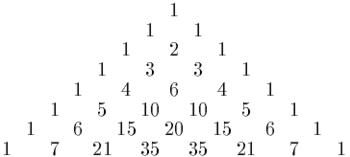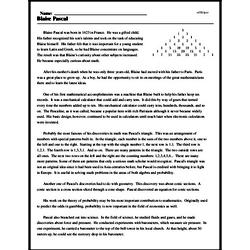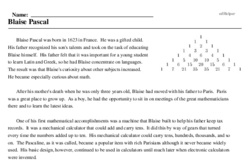Blaise Pascal
Blaise Pascal was born in 1623 in France. He was a gifted child. His father recognized his son's talents and took on the task of educating Blaise himself. His father felt that it was important for a young student to learn Latin and Greek, so he had Blaise concentrate on languages. The result was that Blaise's curiosity about other subjects increased. He became especially curious about math.
After his mother's death when he was only three years old, Blaise had moved with his father to Paris. Paris was a great place to grow up. As a boy, he had the opportunity to sit in on meetings of the great mathematicians there and to learn the latest ideas.
One of his first mathematical accomplishments was a machine that Blaise built to help his father keep tax records. It was a mechanical calculator that could add and carry tens. It did this by way of gears that turned every time the numbers added up to ten. His mechanical calculator could carry tens, hundreds, thousands, and so on. The Pascaline, as it was called, became a popular item with rich Parisians although it never became widely used. His basic design, however, continued to be used in calculators until much later when electronic calculators were invented.




